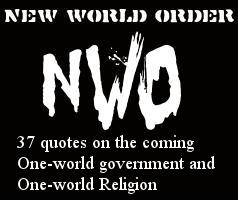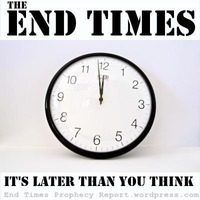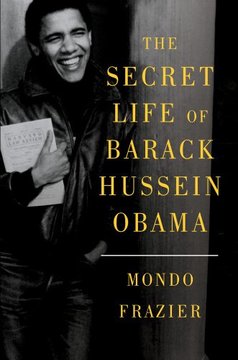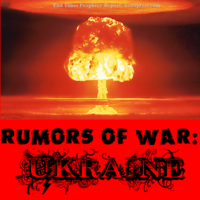
Marcus Wilder, author of Naive and Abroad: Pakistan,
comments on Ralph Peters' view of Bhutto's assassination.
comments on Ralph Peters' view of Bhutto's assassination.
Ralph Peters wrote an op-ed piece in the NY Post a couple days ago about Benazir Bhutto's dark side: the side that commentators with the Jimmy Carteresque foreign policy touch either don't mention or ignored.
The assassination of the Pakistani politician was tragic, as any terrorist-caused death is, but she was not the reincarnation of George Washington as some made her out to be.
When author Marcus Wilder, who traveled and lived in Pakistan extensively, sent us the Peters piece, he wrote, "I will forward a Benazir article a Mexico City friend sent this evening."
He wondered if we'd seen it and what we thought about it.
Since we'd made a few of the same observations that Peters makes in his article, we wondered what Marcus thought. After all, he had lived and traveled in Pakistan during much of Bhutto's turbulent political career as prime minister.
He wrote us with several comments and it's interesting to see where he and Peters agree and where they differ on Benazir Bhutto--the woman Peters sees as providing Pakistan a much greater service dead than she did while alive.
FOR the next several days, you're going to read and hear a great deal of pious nonsense in the wake of the assassination of Pakistan's former prime minister, Benazir Bhutto. Her country's better off without her. She may serve Pakistan better after her death than she did in life.
We need have no sympathy with her Islamist assassin and the extremists behind him to recognize that Bhutto was corrupt, divisive, dishonest and utterly devoid of genuine concern for her country. She was a splendid con, persuading otherwise cynical Western politicians and "hardheaded" journalists that she was not only a brave woman crusading in the Islamic wilderness, but also a thoroughbred democrat.
In fact, Bhutto was a frivolously wealthy feudal landlord amid bleak poverty. The scion of a thieving political dynasty, she was always more concerned with power than with the wellbeing of the average Pakistani. Her program remained one of old-school patronage, not increased productivity or social decency.
When asked about this assessment of Bhutto, Wilder somewhat differed with Peters. "Benzair was not loved, she represented hope for the future. Though deeply flawed, she was the best hope they had."
According to Wikipedia:
Bhutto was sworn in for the first time in 1988 at the age of 35, but was removed from office 20 months later under the order of then-president Ghulam Ishaq Khan on grounds of alleged corruption. In 1993 Bhutto was re-elected but was again removed in 1996 on similar charges, this time by President Farooq Leghari. Bhutto went into self-imposed exile in Dubai in 1998.
As Peters reminds us:
Educated in expensive Western schools, she permitted Pakistan's feeble education system to rot - opening the door to Islamists and their religious schools. During her years as prime minister, Pakistan went backward, not forward.
Her husband looted shamelessly and ended up fleeing the country, pursued by the courts. The Islamist threat -which she artfully played both ways - spread like cancer. But she always knew how to work Westerners - unlike the hapless Gen. Pervez Musharraf, who sought the best for his tormented country but never knew how to package himself.
Ralph Peters is no misty-eyed idealist, holding up democracy as a value which trumps all others. As the War in Iraq has demonstrated, poor and rich alike value stability.
Military regimes are never appealing to Western sensibilities. Yet, there are desperate hours when they provide the only, slim hope for a country nearing collapse. Democracy is certainly preferable - but, unfortunately, it's not always immediately possible. Like spoiled children, we have to have it now - and damn the consequences.
In Pakistan, the military has its own forms of graft; nonetheless, it remains the least corrupt institution in the country and the only force holding an unnatural state together. In Pakistan back in the '90s, the only people I met who cared a whit about the common man were military officers.
Americans don't like to hear that. But it's the truth.
Benazir Bhutto may have draped the flag of democracy over her, but as she demonstrated in her first two terms as prime minister, power and money were prime considerations.
Bhutto embodied the flaws in Pakistan's political system, not its potential salvation. Both she and her principal rival, former Prime Minister Nawaz Sharif, failed to offer a practical vision for the future - their political feuds were simply about who would divvy up the spoils.
What did Marcus Wilder think about the army in Pakistan? How did people see the army and President Musharraf?
"There are, it seems to me, three forces active in Pakistan. Since we
have no numbers, let's arbitrarily say each consists of one third of
the population."
"The pro-Western Benazi Bhutto third wants from government about what
you and I want from government. A member of this third wants a middle
class life, a sound education for his children, a better life for his
children, rule of law. He marries one wife."
The second third wants a non-democratic authoritarian government. This
third consists of the army, the landowners, and socially conservative
groups. These are not fundamentalist radicals, these are
anti-democratic authoritarians.
The weak spot in this group is the army. Lower and mid-level officers
are increasingly fundamentalist. As they rise through the ranks, and
as pro-Western higher ranking officers retire, the army will side more
with the fundamentalists.
The fundamentalists, especially strong in tribal areas, want to return
Pakistan to a 7th century form of Islam."
Back to Peters.
From its founding, Pakistan has been plagued by cults of personality, by personal, feudal loyalties that stymied the development of healthy government institutions (provoking coups by a disgusted military). When she held the reins of government, Bhutto did nothing to steer in a new direction - she merely sought to enhance her personal power.Did Wilder have any close encounters with Bhutto?
"In November of 1988, Benazir was contesting the election. Her rally in Peshawar attracted perhaps 7,000. Benazir was late, but the crowd was good-natured. I did not stay for the rally because I felt if there was to be violence while I was in Peshawar, it would be an attack on Benazir's rally.
I was twenty years ahead of the tragedy."
We asked Marcus to comment on the following passage from the Peters' piece.
Nothing's going to make Pakistan's political crisis disappear - this crisis may be permanent, subject only to intermittent amelioration. (Our State Department's policy toward Islamabad amounts to a pocket full of platitudes, nostalgia for the 20th century and a liberal version of the white man's burden mindset.)
"I mention in my book a Pakistani op-ed page writer who said British policy was opium for China and democracy for India. China, he said, has recovered, but India has not. Under the British, what is now Pakistan was part of India."
Now she's dead. And she may finally render her country a genuine service (if cynical party hacks don't try to blame Musharraf for their own benefit). After the inevitable rioting subsides and the spectacular conspiracy theories cool a bit, her murder may galvanize Pakistanis against the Islamist extremists who've never gained great support among voters, but who nonetheless threaten the state's ability to govern.
As a victim of fanaticism, Bhutto may shine as a rallying symbol with a far purer light than she cast while alive. The bitter joke is that, while she was never serious about freedom, women's rights and fighting terrorism, the terrorists took her rhetoric seriously - and killed her for her words, not her actions.
The one slim hope is that this savage murder will - in the long term - clarify their lot for Pakistan's citizens. The old ways, the old personalities and old parties have failed them catastrophically. The country needs new leaders - who don't think an election victory entitles them to grab what little remains of the national patrimony.
In killing Bhutto, the Islamists over-reached (possibly aided by rogue elements in Pakistan's Inter-Services Intelligence, one of the murkiest outfits on this earth). Just as al Qaeda in Iraq overplayed its hand and alienated that country's Sunni Arabs, this assassination may disillusion Pakistanis who lent half an ear to Islamist rhetoric.
A creature of insatiable ambition, Bhutto will now become a martyr. In death, she may pay back some of the enormous debt she owes her country.
And Marcus Wilder's final thoughts?
"Our influence on outcomes [in Pakistan] is effectively zero."
Peters and Wilder: both are men familiar with Pakistan.
Both offer a sobering counterpoint to the many voices calling for the U.S. to dump Musharraf and turn the fate of the country over to the same chaotic forces that assassinated Benazir Bhutto.
[Ralph Peters (b. 1952) is a retired United States Army Lieutenant Colonel, novelist and essayist.]
by Mondoreb
Sources:
* The Bhutto Assassination: Not What She Seemed to Be
* Ralph Peters - Wikipedia
* Benazir Bhutto - Wikipedia
* Naive and Abroad: Pakistan
* Interview with Marcus Wilder: "Not Only 72 Virgins, But 'Boys Like Pearls'"
* To buy Naive and Abroad: Pakistan, Travel in a Land of Mullahs

Death by 1000 Papercuts Front Page.






























No comments:
Post a Comment
Leave your name/nic.
We've changed the comments section to allow non-registered users to comment.
We'll continue like that until it's being abused.
We reserve the right to delete all abusive or otherwise inappropriate comments.